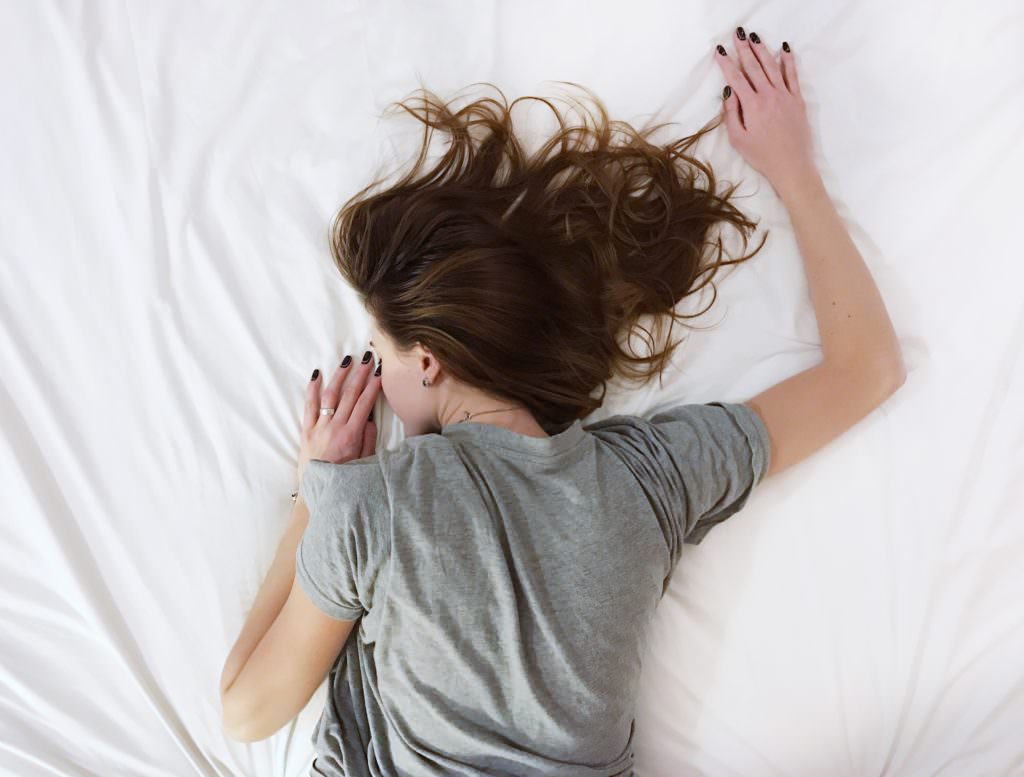
Going to bed later and waking up earlier is the best way to squeeze in a few more productive hours into our day and accomplish more …..right? We’re all guilty of this and that’s absolutely fine if we’re on a tight deadline and a few extra hours over a few days are all we need to get us over the line. However, if this is characteristically a way of life, the impact of poor sleep can be severe and long-lasting.
A consistent sleep pattern is more crucial than you may think and it isn’t just a case of ensuring you’re as productive as possible the following day. Sleep is not only a physical need but also a mental and emotional need.
Getting to the root cause of poor sleep
Numerous studies conclude that we should be getting a minimum of 7.5 hours of sleep each night.
However, “one size does not fit all” and you may find that you need more or less than this. If you’re waking un-refreshed after a few day of a consistent sleep pattern, then gradually increase this until you find yourself waking and feeling refreshed, recharged and raring to go. Conversely, if you only need 6 hours of sleep to wake like this, then this is absolutely fine; the most important thing is that you feel rested.
Why is this important?
Getting this full cycle of sleep allows our body to fully recover from the (normal) stresses endured from the day’s activities, so that we repair and reset during the night, ready to take on the day from the moment of waking.
In many cases I see, sleep is often compromised; whether it’s not enough each night or a night of uninterrupted sleep, the chances are you’re not getting consistently good sleep day-to-day. Furthermore, and this important….you may not correlate this poor sleep quality with difficulties in achieving your health goals.
You may not correlate poor sleep quality with difficulties in achieving your health goals.
Deep sleep, typically the sleep we are in when we dream, includes the Rapid Eye Movement (REM) phase and it is during this crucial phase that we are able to activate the region of the brain connected with learning and memory. Depending on how consistent our sleep pattern is, this phase can last anywhere from 10mins up to 1hour.
What happens when you’re consistently getting poor sleep each night?
I’m not talking about one or two nights of disrupted sleep due to something that’s playing on your mind and keeping you up during the night. It is prolonged periods of insomnia that will affect your overall health.
If you’re waking up un-refreshed and unrested in the morning, your day is going to be harder to get through. You’ll feel tired during the day and ironically you may also have trouble falling asleep at the end of the day.
The consequences of too little sleep on a daily basis can manifest itself in so many ways and can be a significant factor when it comes to achieving your health goals.
Some key symptoms of poor sleep include:
- Weight gain
- Digestive issues
- Hormone imbalance, including Menopuase
- Autoimmune conditions
- Fatigue and lethargy
- Anxiety
- Brain fog and memory issue
- Susceptibility to developing diseases such as cancer
In addition to getting through your day with these symptoms, a bad night’s sleep also means less productivity…all because the brain hasn’t had enough time to recover and reset the areas that are responsible for hormone and neurotransmitter balance and much more.
Improving your overall health and achieving your health goals undoubtedly involves making changes to your diet – that’s a given. However, making lifestyle changes is also crucial; more exercise, a healthier work/life balance and improving food shopping habits, for example, will all help, but improving sleep is also key and shouldn’t be overlooked.
So, aiming to get more sleep is the easy part. Actually getting, not only longer sleep, but better quality sleep is more of a problem
What are the causes of poor sleep?
Insomnia, the inability to sleep has many causes. Stress, sleep apnoea and physical pain are more obvious issues. However, when I see clients, I delve a little deeper and in many cases conclude that poor sleep can be attributed to blood sugar fluctuations during the day, hormonal fluctuations such as menopause and even inflammation as a result of a bad diet or food sensitivities.
The good news is that these can be fixed naturally, by looking at exactly what you’re eating and linking your symptoms to your food choices.
From experience, getting to the root cause and dealing with these issues specifically, can have an immediate effect on your sleep quality.
Improving your sleep hygiene to address insomnia
In the first instance, focusing on your bedtime habits and rituals, in other words, your sleep hygiene, can go a long way to avoiding poor sleep, allowing the body sufficient time to rest and repair.
My 10 key tips to ensure better sleep:
-
Establish how much sleep you need
Take the time to establish the number of hours you need that allows you to wake refreshed and feel energised for the day, aiming for 7-8 hours at the outset and tweaking until you feel you are getting sufficient sleep.
-
Head to bed around the same time each night
Once you know how much sleep you need, make sure you establish a regular sleep pattern to allow for this. This may mean setting an alarm for the morning. It is also important to stick with these patterns over the weekend as well as the weekday.
-
Ensure the bedroom is quiet with no TV
Psychologically the bedroom should be a comfortable, quiet place, that is subconsciously associated with sleep; a dedicated space where you can lie down and stretch out before eventually falling asleep.
-
Ensure the bedroom is neither too hot nor too cold
Maintaining a cooler room temperature allows your body to regulate its temperature more easily during the night. The body temperature naturally drops during sleep
-
Limit screen time
Many phones, computers and tablets emit a blue light that can trick the brain into thinking it’s daytime. This strong light can also be too stimulatory so your brain is not relaxed enough before sleep. Ideally, these should be avoided at least 1 hour before bed
-
Ensure the bedroom is as dark as possible
The brain registers darkness and this will induce good sleep. The morning light is then a trigger to wake; allow the body’s natural sleep/wake cycle to take place.
-
Limit alcohol and caffeine
These are known sleep disruptors but affect each person differently. Whilst alcohol may induce sleep initially, it is likely to interrupt sleep during the night and therefore limit or even prevent the essential REM or deep sleep phase. Caffeine, on the other hand, is a stimulant and therefore can make it difficult for the brain to slow down at the end of the day.
-
Increase activity
Exercise and activity during the day will have a big impact on sleep quality and will help the body to feel physically tired and ready for sleep. However, strenuous exercise such as a heavy gym session or a run should be avoided at night, as the energising effect will make it harder to fall asleep. Also, don’t forget that good sleep is essential for repair in general, including muscle repair following exercise.
-
Get more sunshine
Our body’s sleep/wake cycle is closely related to our circadian rhythms and your brain will rely on sunshine during the day to determine the time to be awake and alert. The more natural light it receives, the better the body will become at differentiating between daytime and nighttime.
-
Follow the same bedtime routine each night
This trains your brain to recognise that it is time for bed and almost gives you “permission” to relax at the end of the day. Bedtime routines will differ from person to person but can include:
- A warm bath/shower
- A herbal tea
- Reading a book or magazine
- Meditation or deep breathing exercises
Working with me to get a good night’s sleep
If you’d like to work with me to find out the underlying issues that are affecting your sleep, make the necessary adjustments through simple diet and lifestyle changes, you’ll find that getting a good night’s sleep is much easier than you may think.
I work with many clients one to one as well as online using FaceTime or Skype. CLICK HERE for full details.








1 Comment
Katia
Very comprehensive list and sound advice. Thanks May.